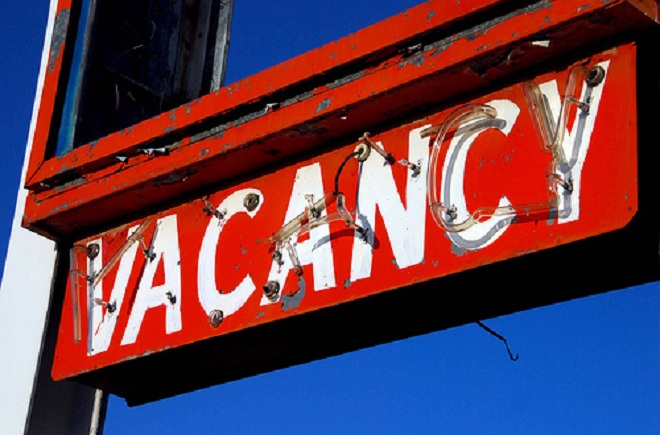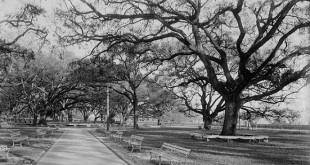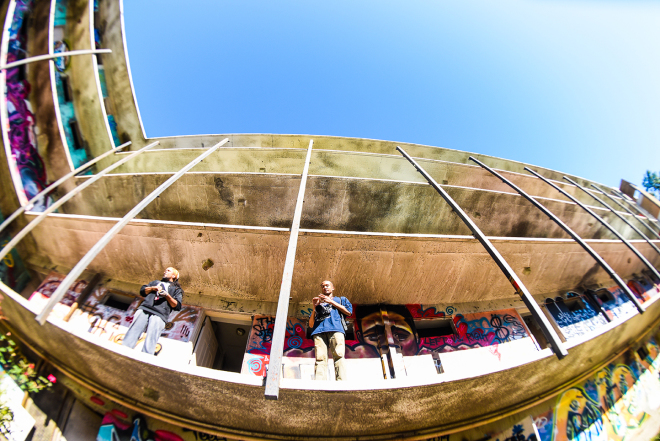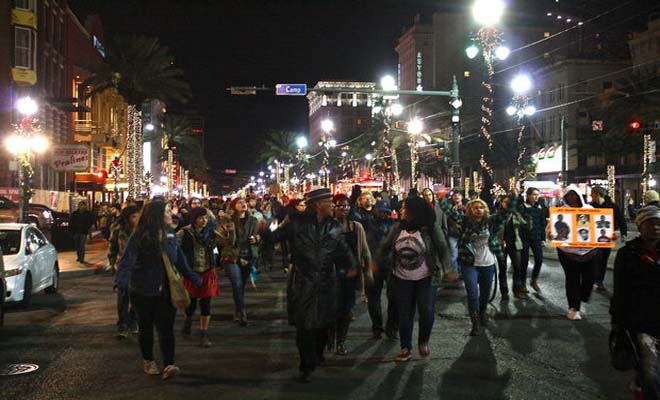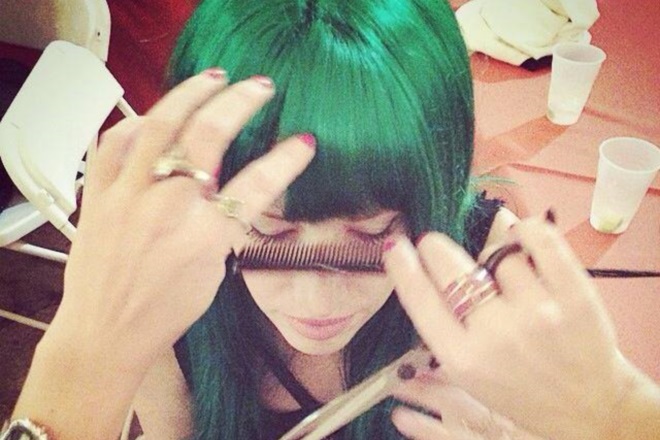For those unaware, a major start-up has arrived in New Orleans that could spell big change for the tourism industry in the city: Airbnb.
Airbnb offers low-cost, short-term housing for travelers to various cities throughout the country and abroad. Residents can offer up their rooms, homes, buses, even couches for a small (or large) fee and have those visiting the city reside there for under 30 days. While new businesses and travelers are always welcome in New Orleans, some feel like the repercussions could outweigh any benefit that the service provides.
The Good
New Orleans already has over 1,700 places already listed on airbnb.com, the majority in ares like the Marigny and Bywater neighborhoods, as well as a sprinkling in the French Quarter and throughout the Treme/St. Claude/7th Ward area. Many have lauded Airbnb for coming to New Orleans and providing many citizens the chance to make some extra income during high-traveling seasons as well as giving tourists a chance to see the “real” New Orleans.
The site has been just as beneficial for some homeowners, who have used this as a chance to make some money on the side while providing an authentic New Orleans experience. By taking their boarders out for drinks and shows, showing them the best restaurants to go to and what neighborhoods and people to avoid, tourists get a chance to feel like a local while visiting a place they’ve never truly experienced.
Furthermore, the intangibles provide a better experience. Visitors with food allergies need the kitchens in order to prepare the food they cannot find at restaurants. Those with pets have a place to let them out to run. There seems to be a greater degree of connection between residents and their boarders which will hopefully translate into more tourism and better publicity for the city. And to top it off, the affordability of Airbnb can bring a larger amount of lower-income tourists, students and foreign travelers to the city. Take a look at Richard Campanella’s piece for The Times-Picayune where he argues for the importance of new influences arriving in New Orleans, providing an enriching landscape and creating a motley population.

The Bad
The main concern with Airbnb is how the hotel and hospitality industry, one of our most important assets, will react. While New Orleans hosts on average 5 million visitors per year, the less than 2,000 homes participating in Airbnb don’t seem to pose any major threat. Yet.
The problem? There are several.
The first has to do with taxes. Whereas normal hotels and short-term rentals have to abide by specific zoning rules and taxes, Airbnb has nearly foregone this procedure altogether, even though they have made a great deal of revenue. In fact, the whole short-term leasing prospect is illegal in accordance to city zoning laws. One 2013 Times-Picayune article shows that the city is missing out on “$13 million in revenue” and “$1.4 million in taxes” in addition to changing property value in the neighborhoods. According to city ordinance, when you are leasing living space for less than 30 days, you have to pay per-room taxes. But the homeowners in association with Airbnb only fill out a 1099 form that makes them check a box declaring that they will try to abide by the city’s living codes while leaving it the homeowner’s responsibility that city taxes are paid. Is this fair for those in the hotel industry?
Antigravity Magazine wrote a compelling piece on denouncing “an exploding market with no oversight whatsoever” and the dangers of commodifying the city’s neighborhoods. While visitors to NOLA will love this low-cost housing service in high-traveling seasons like Mardi Gras and springtime, affordable housing in the city could take a hit. For the most part, lower-income areas and homes are a larger demographic of Airbnb, which is great for those leasing, but those that are looking to move into an affordable place may have more difficulty.
In addition to a scarcity of low-cost places, rents in the surrounding neighborhoods increase as well. Some people are already complaining that they are being kicked out of their homes because leasers want to make room for the tourists that will pay anywhere from $100-$1000 for a short-term rental. Now, it is hardly the homeowner’s responsibility to control the housing prices or availability, but it begs the question, will this entrepreneurial endeavor be beneficial or detrimental to the city’s residents and infrastructure?
The Ugly
The more research I did, the more I was wondering why the majority of the listing for Airbnb homes were in the Marigny/Bywater/7th Ward area. While these areas are scenically beautiful to a local, why would a tourist want to reside there? Wouldn’t neighborhoods like the Riverbend, Garden District and Warehouse District be more posh? Perhaps the influx of the bohemian artists, musicians and creative types gives the area a fresh air and realness that can’t be duplicated in other areas of the city. While the area may have been slightly gentrified, the income brackets of the area has a large range. Celebrities and famous artists live next to waiters and bartenders. But what this area has to offer visitors besides swanky bars and under-the-radar restaurants?

The Uglier?
Which leads me to my next point. Apparently the trend of disaster tourism seems to be a major component of why these areas are the most popular among those visiting the city. And homeowners seem to have no problems showing them around. People want the authentic New Orleans experience, and no one would argue that seeing 10 year old flooded houses in the middle of your neighborhood is part of that experience. Maybe I just come from a standpoint of not wanting to air our dirty laundry, but when I first heard of this trend in “disaster tourism” I was concerned. While I appreciate the changes and camaraderie that Hurricane Katrina brought to the city, I also don’t like reliving it. Whenever tourists or friends in other cities ask me “How was Katrina?” I always respond politely, but inside I’m thinking “You mean the fantastic technical, political and racial breakdown of the city during a natural disaster? Well probably just as horrible as you can imagine.”
So when I hear about people coming to the city to tour the areas that were destroyed the most, I have mixed emotions about it. On one hand, I don’t want people to forget the horror that was that time period. On the other, I don’t want people making money off the misery and destruction that some unfortunate families had to suffer. I don’t want people to remember NOLA as blighted house. New Orleans gets beat down every few years and she still standing, so sue me if sometimes I feel it’s time for people to just leave the Katrina party already. But if it brings people and their money to the city, am I traitor to my town for not wanting them here?
All in all, there are plenty of tourists to go around. But with companies like Airbnb, now there is greater responsibility placed on these residents to provide the insider information to these visitors. So if you are going to participate in this, know what you’re getting into and do it for the right reasons. Be sure to let visitors know where to go and where to avoid, tell them about the tricks and scams, show them the real city that you and I see everyday. But most importantly, the goal should be protecting the city and showing those that visit that we’re still standing and ready to party.
What do you think of Airbnb in New Orleans? Love it or Hate it? Tell us all about it in our Comments Section!
